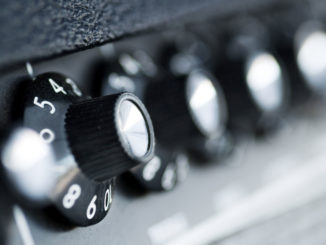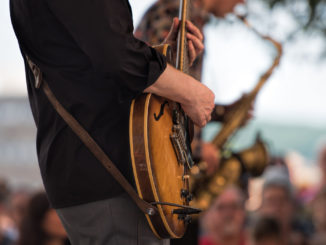Through a committee, build a qualified wish list that meets your strategic criteria
In today’s world, it’s more important than ever to be very diligent, accountable and responsible for the “Entertainment Budget” at a casino property. Upper management, CFOs and CEOs have to answer to a Tribal Council or a Tribal Board about all financial expenses.
Entertainment is almost always coupled up with the Marketing Department, and a lot of money gets spent monthly for advertising, branding, promotions, entertainment, marketing, etc. It’s not always clear what the expectation is and what the strategic plan is when it comes to entertainment programming.
Let’s start here with these questions to evaluate and review the live entertainment at your casino:
- Is our entertainment venue intended to be a profit center? Is that realistic? In other words, do our ticket sales need to cover the cost of our entertainer?
- Is it better to look at live entertainment as a “loss leader,” a magnet to draw in new guests?
- Is the program an extension of a greater campaign to brand and image the casino?
- Is our entertainment an advertising vehicle intent on targeting specific demographics and guests?
- Is our live entertainment drawing in new guests to experience our overall entertainment value (gaming, food & beverage, hotel, fun, excitement, atmosphere), and thereby raising the incremental revenues of all our varied departments?
- Is our program designed to fine-tune player profiles to increase the floor revenue?
- Are we using entertainment to reward our best guests?
- How can entertainment be used to increase the fun factor for our guests?
- What does our past history tell us about what works and what doesn’t work?
Getting the right people on an evaluation committee is crucial.
You probably want to get all the decision makers in there so everything gets said that needs to be said, and therefore nothing will come up later. Having a common understanding of the purpose of live entertainment at the casino solves a lot of problems, and makes it easier to evaluate all aspects of your program, such as budget, frequency of shows, types of enter¬tainment, staffing, venue quality and size, decision-making process, etc.
It is not realistic to have live entertainment be a defined profit center unless you count the incremental revenues from ticket sales, the drop in the casino the day of the show, food & beverage, hotel rooms, gift shop, etc. In other words, if live entertainment is responsible for drawing an additional 1,500 people onto the property on a Thursday night, what overall financial benefit does the property enjoy from that action and investment?
Also crucial to this, where do you place the advertising expense? If you say that advertising is a big picture branding/marketing expense and shouldn’t be allocated to a specific night because having the advertising helps reinforce the overall casino image and helps with top-of-mind awareness, then of course your event numbers will be more impactful.
On another note, a key area to look at in your assessment is who makes the decisions about what entertainment to buy.
It is a fact that many people in your organization think they know what to book and when to book it, and this causes big problems for the people charged with the responsibility of the day-to-day operation.
One solution is to gather the powers-that-be on a biannual basis and put together a wish list of entertainers who are affordable for the venue size, whose appeal matches the demographics that you are trying to attract to the casino, and who will match the brand you are trying to build, because nothing says more about your casino brand than the entertain¬ment you book.
Now that you have a qualified wish list that meets the objective criteria that fits into your plan, it is easier to make decisions as certain entertainers become available in your region, which allows you to save money on booking. The most expensive way to buy entertainment is to try to get a specific entertainer on a specific date. Having the wish list allows you to focus on a large group of the right entertainers and to buy smart. This approach helps your outside talent buyer find the routed opportunities that fit into your strategic plans.
Another controversial issue is your ticket comp policy.
Many executives struggle with investing in a nice venue, spending big dollars on entertainers and advertising, and then giving away tickets. The traditional gaming centers learned long ago that live entertainment is the magnet to bring in new gamers and reward current gamers, and that comp tickets were more than paid back by the dollars left behind in the casino. Make sure your Players Club database is current and kept up to date.
The biggest and most successful casinos today put the most people in comped seats. They have very accurate player rating systems in place and very current database systems. They know the ADT (average daily theoretical) of these players, and they know the potential value of the player when they are on-property. Those comped seats are worth hundreds and sometime thousands of dollars to your property.
There are many things to assess in your evaluation of your live entertainment program. It is important in the beginning to define the purpose of live entertainment at your casino, as everything else flows from that. Getting a committee con¬sisting of top management is crucial. How you measure the financial results of entertainment has everything to do with the perception of your program within the casino. If you can agree on what to measure, you will have more people on your team who understand the total benefits of live entertainment. Having a wish list of qualified entertainers is the smart way to buy talent. Outside opinions are great as long as they fit within the criteria of what you are trying to accomplish through your entertainment program.



